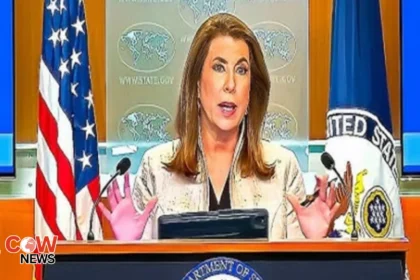ISLAMABAD: In a major development ensuring a steady supply of petroleum products and reducing the immediate fiscal burdens, the Kingdom of Saudi Arabia (KSA) has signed a Memorandum of Understanding (MoU) with Pakistan for provision of $1.2 billion Saudi Oil Facility (SOF) for one year.
The KSA will charge 6 percent mark-up on SOF that’s expected to become operational from March 2025. The SOF will help Islamabad meet its external front requirements for fulfilling the IMF conditions under the $7 billion Extended Fund Facility (EFF).
The IMF’s review mission is expected to visit Islamabad during the ongoing month or early March 2025 for holding parleys for completion of the first six-month review under the EFF arrangement.
Both sides also struck other MoUs including Gravity Flow Water Scheme for Mansehra with estimated cost of $41 million and export of skilled workforce from Pakistan.
“Yes, the Kingdom of Saudi Arabia (KSA) has agreed to provide $1.2 billion oil facility for one year with disbursement of $100 million per month,” Federal Minister for Economic Affairs Ahad Cheema said in a brief response to The News when this reporter contacted him on Monday. He did not comment on the exact timeframe of the SOF to begin. However, sources said the facility might kick-start from March 2025.
The oil facility expired in December 2023 after which Islamabad made a formal request for provision of a new SOF. When the IMF programme was struck under the $7 billion EFF during the current fiscal year, the external financing also incorporated $1.2 billion SOF from Saudi Arabia.
Pakistan’s current account deficit (CAD) has turned into a surplus helping the country jack up its foreign exchange reserves. The market is full of liquidity enabling the State Bank of Pakistan (SBP) to shore up its foreign exchange reserves in order to build up a buffer for foreign exchange reserves.
The SOF will enable Islamabad to increase its foreign exchange reserves in months ahead to a level where it will be able to fulfil the import bill requirements of three months. In another development, both the countries are moving towards clinching the Reko Diq deal within few months.
The revised valuation of the project has already been accomplished and both sides are heading towards finalising the nitty-gritty. The KSA will procure 10 percent stakes at the first stage which may increase to 20 percent in future. Now, a deal is expected to be struck on selling the stakes in shares to KSA in the coming months.
Muhammad Anis adds: Prime Minister Shehbaz Sharif witnessed the signing of SOF as well as the loan agreement for Gravity Flow Water Supply Scheme costing $1.61 billion. Secretary Economic Affairs Division Dr. Kazim Niaz and CEO Saudi Development Fund (SDF) Sultan Bin Abdul Rehman Al Marshad signed the agreements on behalf of their governments.
“The prime minister welcomed the signing of Oil Import Financing Facility under which Pakistan will receive oil on deferred payment for one year totaling USD1.2 billion,” said the PM media office in a press statement. The SFD will provide USD41 million for Gravity Flow Water Supply Scheme enhancing the access of 150,000 local people to the clean drinking water.
Under this facility, water will be available to 201,249 people by 2040 improving the overall public health and quality of life. A delegation of Saudi Fund for Development (SFD), led by CEO Sultan Bin Abdul Rehman Al Marshad called on Prime Minister Muhammad Shahbaz Shari at the PM House on Monday.
The prime minister welcomed the delegation and appreciated the long-standing friendship between the two countries and the SFD’s efforts for providing financing to Pakistan in the fields of health, energy, infrastructure and education as well as for reconstruction after the 2022 floods.
Sultan Bin Abdul Rehman thanked the prime minister and Government of Pakistan for the warm welcome and hospitality extended to the Saudi delegation. He also shared updates with the prime minister on the ongoing projects including Mohmand Multi-purpose Hydropower Project, Golan Gol Hydropower Project, Malakand Regional Development Project, and other projects funded through the Saudi grants.
Appreciating the SFD’s support, Shehbaz highlighted the need to expedite the processing of new projects in the field of green energy and infrastructure, which will go a long way towards reviving the country’s economy besides serving the needs of the local communities.
The SFD chief executive officer assured speedy processing of the shared projects and also reiterated that the Kingdom of Saudi Arabia, under the leadership of the royal family, will extend all possible assistance and continued support to Pakistan.
The prime minster thanked Sultan Bin Abdul Rehman and the delegation members and conveyed his best wishes to all the royal family members, especially Khadim-e-Harmain Sharifain King Salman bin Abdulaziz Al Saud and Crown Prince and Prime Minister Mohammed bin Salman.
Deputy Prime Minister Ishaq Dar, Minister for Economic Affairs Division Ahad Khan Cheema, Minister for Finance Muhammad Aurangzeb, Minister for Information and Broadcasting Attaullah Tarar, Minister for Petroleum Dr. Musaddiq Malik and SAPM Tariq Fatemi along with senior officials of the Government of Pakistan attended the meeting.
Saudi Ambassador to Pakistan Nawaf bin Said Al-Malki was part of the four-member Saudi delegation. Meanwhile, Sultan Bin Abdul Rehman Al Marshad called on Federal Minister for Finance and Revenue Senator Muhammad Aurangzeb at the Finance Division here during which various aspects of Pakistan-Saudi economic relations came under discussion.
Aurangzeb shared updates on Pakistan’s macroeconomic stability, highlighting improvements in key economic indicators. He expressed his gratitude for the longstanding partnership between Pakistan and the Kingdom of Saudi Arabia, emphasizing the importance of Saudi Arabia’s continued support in funding and investment, which had significantly contributed to Pakistan’s economic growth.
He also recalled his recent meeting with Saudi Minister of Finance Mohammed bin Abdullah Al-Jadaan in Davos, and inviting him to Pakistan to attend the first edition of the high-level annual conference on challenges and opportunities facing emerging market economies, which is being jointly organized by the International Monetary Fund (IMF) and the Kingdom of Saudi Arabia in Al-Ula, Saudi Arabia, on February 16-17.
The finance minister expressed his anticipation for the conference, noting the valuable insights he hoped to gain from the event and the leadership of Saudi Arabia in implementing ‘Vision 2030’.
Marshad lauded the progress Pakistan had made in terms of macroeconomic stability and growth, which had opened up numerous multi-purpose investment opportunities across various sectors. He particularly noted the potential for further collaboration between Pakistan and Saudi Arabia, inviting investors from the Kingdom to explore these emerging opportunities.
Additionally, he acknowledged the valuable contributions of Pakistanis in the development of Saudi Arabia, recognizing them as the largest foreign workforce in the Kingdom. He expressed Saudi Arabia’s need for a skilled workforce to meet the demands of its growing market.
To address this, he proposed a partnership with relevant government ministries and departments in Pakistan to offer training programs for young Pakistanis in modern and relevant skill sets to meet the labor market demands in Saudi Arabia.
APP adds: Meanwhile, the prime minister welcomed the recording of inflation at a 9-year lowest digit of 2.4 percent in January this year and said its gradual decline was highly encouraging, the PM Office Media Wing said in a press release.
At the beginning of 2024, inflation rate stood at 28.73 percent, which decreased to 4.1 percent by December 2024, Shehbaz said, adding the inflation rate further declined to 2.4 percent in January 2025.
He further observed that a decrease in the prices of essential commodities was contributing to improving the quality of life for ordinary citizens, adding gradual reduction in inflation was showing positive indicators across all sectors. “A further decrease in inflation is evidence that the government’s economic policies and actions are on the right track,” Shehbaz said. He said the government was working tirelessly to further reduce inflation, improve the lives of common citizens and ensure national welfare.
Israr Khan adds: Pakistan’s headline inflation rate measure by the Consumer Price Index (CPI) fell to over a nine-year low of 2.4 percent in January 2025, down from 4.07 percent in December 2024 and 28.3 percent a year earlier, official data showed Monday.
This marks the lowest inflation since October 2015 and the sixth straight month of single-digit inflation, according to the Pakistan Bureau of Statistics (PBS). The decline is driven by the falling prices of housing, utilities, communication, restaurants, and hotels, along with a contraction in food and non-alcoholic beverages.
Inflation peaked at 38 percent in May 2023 before entering a sustained decline. For July-Jan FY2024-25, average inflation fell to 6.5 percent from 28.73 percent a year earlier. Economists cite stable commodity markets, improved supply chains, and a relatively steady rupee as contributing factors, along with a “base effect” from last year’s high inflation.
Notably, urban inflation year on year stood at 2.7 percent year-on-year, while rural inflation dropped to 1.9 percent during January 2025. Core inflation, which excludes volatile food and energy prices, eased to 7.8 percent in January from 8.1 percent in December and 18.2 percent in December 2023.
The central bank’s decision to change rates was largely based on this key measure of inflation. Despite easing inflation, Pakistan’s real interest rates remain the highest. With the State Bank of Pakistan’s policy rate at 12 percent and inflation at 2.4 percent, the real interest rate now stands at 9.6 percentage points, raising concerns over economic growth and debt sustainability.
Analysts warn that prolonged high rates could stifle recovery and add to fiscal pressures, as debt servicing consumes over three-fourth of government revenues.
The IMF projects Pakistan’s inflation to average 9.5 percent for FY2025, significantly below the 23.4 percent recorded in FY2024. However, global energy price shocks and currency fluctuations could reignite inflationary pressures.
Food inflation played a key role in the decline. The prices of food and non-alcoholic beverages fell 3.1 percent year-on-year in January. However, chicken prices rose 35.3pc, moong pulse 5.4pc, fresh fruits 5.01pc, cooking oil and sugar 3.9pc each, and vegetable ghee 2.6pc.
Meanwhile, potatoes fell 28pc, tomatoes 20.7pc, fresh vegetables 20pc, and eggs and onions 14pc each. The Wholesale Price Index (WPI) declined to 0.6 percent in January, the lowest since June 2016, down from 1.9 percent in December 2024 and 27 percent in January 2024, indicating retail inflation may remain stable.
In another development, Pakistan and Saudi Arabia Monday signed an agreement to enhance cooperation in areas of audit. According to an official announcement, the Office of the Auditor General of Pakistan has concluded a bilateral meeting with the General Court of Audit (GCA) of the Kingdom of Saudi Arabia.
The high-level engagement welcomed His Excellency Dr. Hussam Bin Abdulmohsen Alangari, President of GCA, and his delegation to Islamabad. The discussions focused on fostering closer ties between the Supreme Audit Institutions (SAIs) of Pakistan and Saudi Arabia, sharing innovative audit methodologies, and planning collaborative initiatives for the future.







